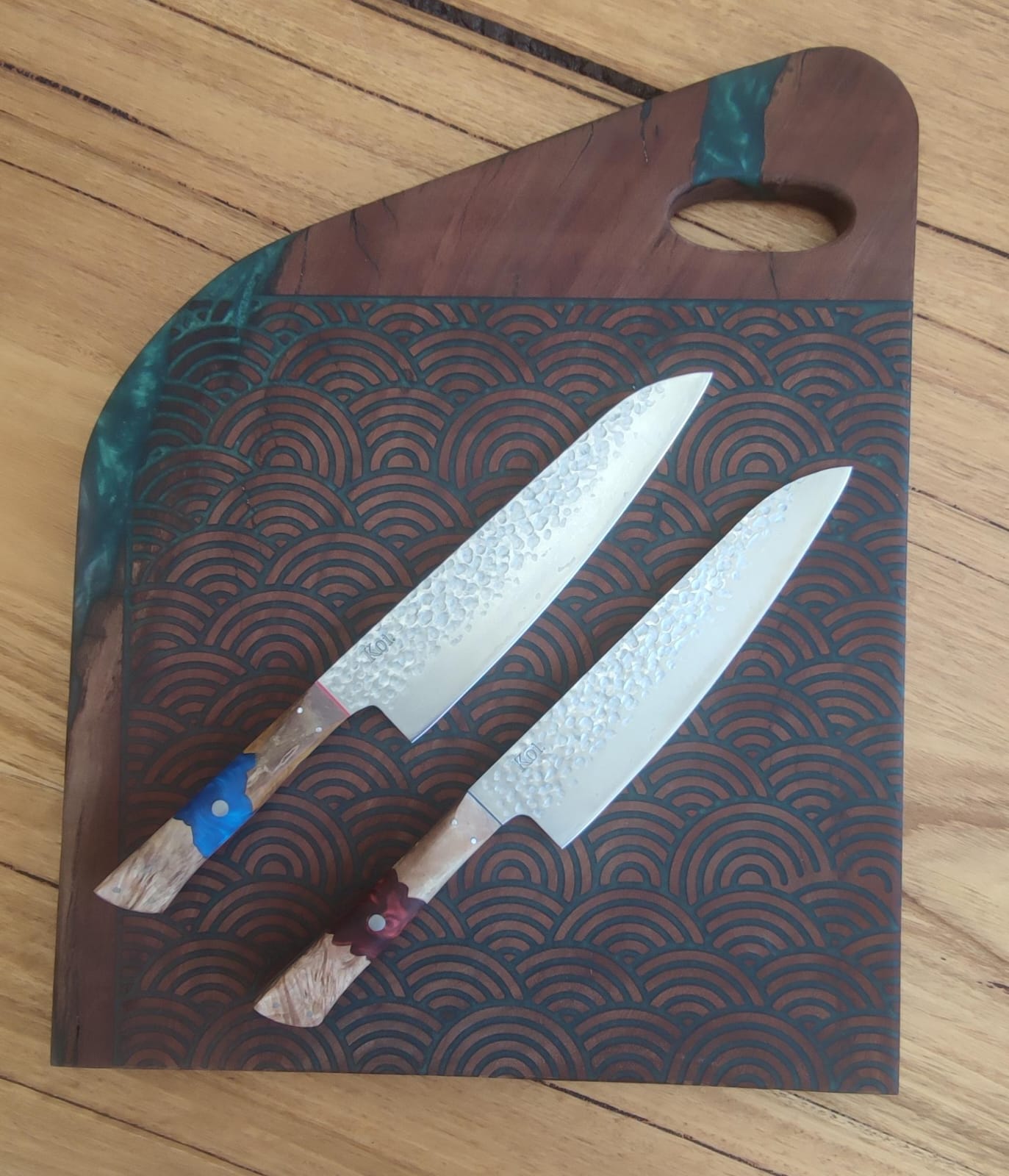Possessing knife skills is essential in the culinary arts, allowing chefs and cooking enthusiasts to express themselves in the kitchen. Proper knife practices will significantly enhance the quality of your dishes by increasing precision and efficiency.
In this post, we'll examine the importance of knife skills in the culinary arts and how they can improve your cooking experience.
We will look at the advantages of developing your knife-handling skills, from increasing efficiency to assuring safety.
Let's hone our talents and discover the world of knife skills together.
Importance of Learning Proper Knife Skills
Mastering proper knife skills is a fundamental aspect of culinary excellence. It not only enhances efficiency and precision in food preparation but also ensures safety in the kitchen.
Enhancing Efficiency and Precision in Food Preparation
You can reduce food waste and create consistent and uniform cuts by honing your knife abilities. Precise knife techniques allow you to get the most out of your ingredients, ensuring that every slice and dice adds to the final dish. Improved efficiency allows for faster meal preparation and a smoother kitchen workflow.
Ensuring Safety in the Kitchen
Learning proper knife skills minimises the chance of food preparation mishaps. Understanding proper handling and grip techniques is critical for controlling and reducing slips and cuts. You may protect yourself and others in the kitchen by practicing safe practices like the claw grip and a solid cutting surface.
Practical knife abilities extend beyond simple knife usage, including proper knife care, such as regular sharpening and honing. Sharp knives improve precision and limit the possibility of mishaps caused by dull blades.
Tips for Improving Knife Handling Skills and Techniques
Improving your knife abilities and increasing your culinary prowess requires focusing on proper procedures and developing helpful habits. Here are some helpful hints to help you improve your knife-handling techniques:
Selecting the Best Knife
Choosing the right knife is critical for effective and safe cutting. When selecting a knife, keep the following elements in mind:
- Blade Type: Each blade is designed for a certain purpose. A chef's knife, for example, is valuable for a variety of jobs, whereas a paring knife is best for fine work.
- Size and Weight: Choose a balanced and comfortable knife, allowing for accurate control and less fatigue.
- Quality: Invest in high-quality knives made from durable materials to ensure longevity and optimal performance.
Proper Knife Handling Techniques
Mastering proper knife-handling techniques is key to improving your skills. Here are a few techniques to focus on:
- The Claw Grip: Hold the food securely with your non-dominant hand, curling your fingertips inward to protect them while guiding the blade.
- Rocking and Chopping Motions: Utilise a rocking motion for slicing and mincing, while chopping motions are more suitable for harder ingredients like root vegetables.
- Knife Honing and Sharpening: Regularly hone your knife to maintain its sharpness, and sharpen it when necessary to ensure clean and precise cuts.
Workstation Setup and Safety Measures
Create a safe and efficient workstation by implementing the following practices:
- Stable Cutting Surface: Use a cutting board that provides a stable and secure surface to prevent slips and accidents.
- Proper Body Positioning: Stand with your feet shoulder-width apart and maintain a balanced posture while cutting to enhance control and stability.
- Safe Storage: When not in use, store your knives in a designated knife block or sheath to protect the blades and yourself from accidental injuries.
Practice and Patience
Improving knife handling skills takes time and practice. Dedicate regular practice sessions to hone your techniques and build muscle memory. Start with simple tasks and gradually progress to more intricate cuts as your skills improve.
The Advantages of Knife Skills Classes or Online Tutorials
Self-teaching is not the only way to improve your knife abilities; there are various advantages to taking knife skills workshops or watching online lectures.
Guidance and Structured Learning
Knife skills programs provide a controlled learning setting in which you can systematically master skills. Experienced teachers will walk you through the procedures, ensuring you understand proper knife handling, grip, and cutting approaches.
Hands-on teaching allows you to practice under expert supervision, receive rapid feedback, and fix any faults in real-time. Furthermore, instructors frequently give essential tips and tactics established over years of expertise to help you efficiently sharpen your talents.
Online Resources' Convenience and Flexibility
Online lessons provide unrivalled ease and flexibility when mastering knife skills. You may access instructional videos and step-by-step guidance at your own pace and convenience, with a wide choice of lessons. Whether you're a novice or an experienced cook trying to improve your skills, online tools offer an array of information at your fingertips.
Furthermore, online lessons frequently cover various skill levels, specific techniques, and even specialty cuisines, allowing you to tailor your learning experience to your interests and ambitions.
Access to a Variety of Tutorials
A comprehensive library of knife skills tutorials from renowned chefs and culinary experts is available online. You can explore other perspectives, methodologies, and cultural approaches to knife skills from the comfort of your home. This diversity exposes you to various cutting styles and knife choices. and culinary traditions, widening your culinary horizons and expanding your skill set.
Applying Knife Skills to Enhance Your Cooking
Mastering knife skills improves your kitchen's efficiency and safety and profoundly impacts your culinary creations' quality and creativity.
Speeding up Food Preparation
You can significantly reduce the time spent on ingredient preparation by honing your knife skills. Swift and precise cuts allow for quicker chopping, slicing, and dicing, enabling you to streamline your cooking process.
Elevating Presentation and Aesthetics
Well-executed knife techniques contribute to visually appealing dishes. Consistent and uniform cuts enhance the presentation, making your meals more visually appealing and professional-looking.
Improving Overall Culinary Skills and Creativity
Knife skills are the cornerstone for many different cooking techniques. You develop confidence in exploring more sophisticated culinary procedures as your knife-handling skills improve. You can create intricate garnishes, delicate julienne, and expertly deboned meats by finely tuning your cutting techniques.
Conclusion
Acquiring knife skills is a critical component of being a skilled cook.
The value of knife skills in the kitchen cannot be overstated—they improve productivity, precision, and safety.
Good knife handling practices can result in more consistent cuts, less food waste, and fewer accidents.
Remember to choose the ideal knife for the job, practice good grip and cutting techniques, and hone and sharpen your blades regularly to improve your knife handling skills. Seek out possibilities for learning and practice, such as knife skills classes or online tutorials.




